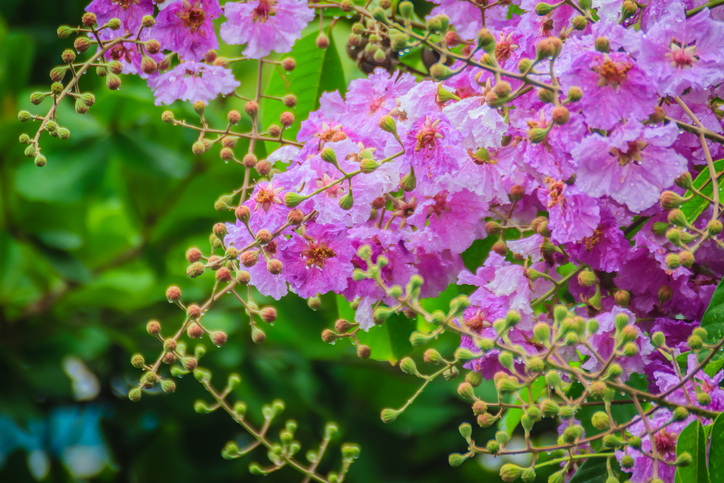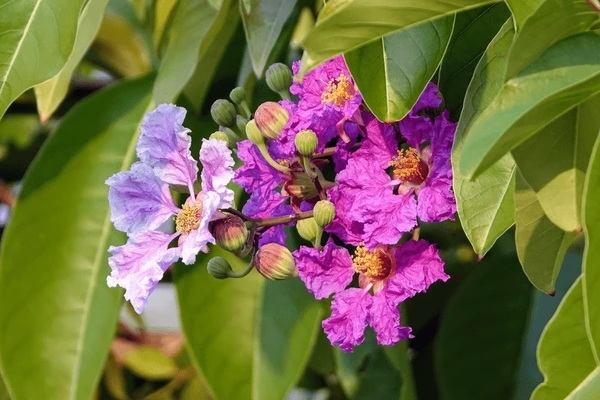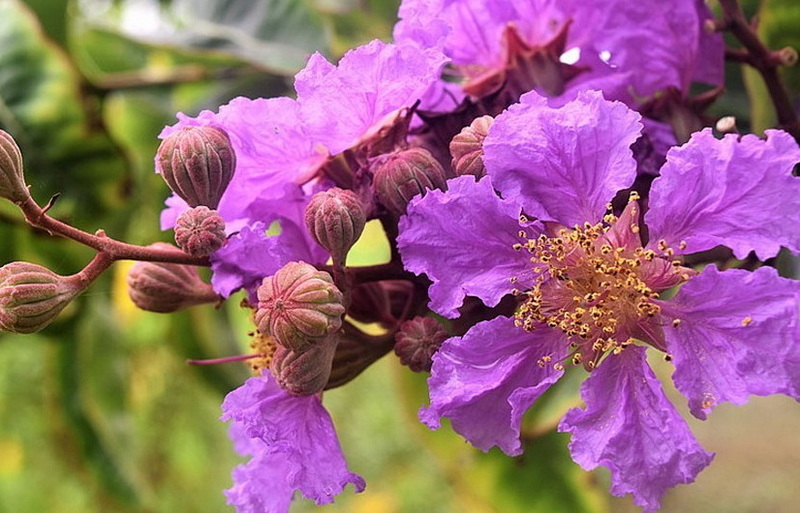Content Menu
● Introduction to Banaba Leaf Extract
>> Benefits of Banaba Leaf Extract
● Best Ways to Use Banaba Leaf Extract
>> 1. Dietary Supplements
>> 2. Tea and Infusions
>> 3. Combination with Other Herbs
>> 4. Topical Applications
>> 5. Incorporation into Food
● Potential Side Effects and Precautions
● Scientific Evidence and Studies
● Cultural and Traditional Use
● Conclusion
● FAQ
>> 1. What is the recommended dosage of Banaba leaf extract?
>> 2. Can Banaba leaf extract be used for weight loss?
>> 3. Are there any potential side effects of Banaba leaf extract?
>> 4. Can Banaba leaf extract be combined with other herbs?
>> 5. Is Banaba leaf extract suitable for everyone?
● Citations:
Banaba leaf extract, derived from the Lagerstroemia speciosa tree, has been used for centuries in traditional medicine, particularly in Southeast Asia. It is renowned for its potential health benefits, including blood sugar regulation, antioxidant properties, and weight management. This article will explore the best ways to utilize Banaba leaf extract to maximize its health benefits.

Introduction to Banaba Leaf Extract
Banaba leaves are rich in bioactive compounds such as corosolic acid, ellagic acid, and gallic acid, which contribute to their medicinal properties. The extract is often used to support diabetes management, reduce oxidative stress, and aid in weight loss.
Benefits of Banaba Leaf Extract
1. Blood Sugar Regulation: Banaba leaf extract, particularly corosolic acid, mimics insulin by facilitating glucose uptake into cells, thereby reducing blood sugar levels. Studies have shown significant decreases in fasting and postprandial glucose levels in both diabetic and non-diabetic individuals.
2. Antioxidant Properties: The antioxidants in Banaba leaves help neutralize free radicals, reducing oxidative stress and protecting against cellular damage. This is crucial for preventing chronic diseases like diabetes and heart disease.
3. Weight Management: Banaba extract may aid in weight loss by regulating blood sugar levels, which can reduce cravings and prevent overeating. It also inhibits the formation of fat cells.
4. Cardiovascular Health: The antioxidants and flavonoids in Banaba leaves may help lower cholesterol levels and improve cardiovascular health by reducing inflammation and improving lipid profiles.
5. Neuroprotective Effects: Some studies suggest that Banaba leaf extract may have neuroprotective properties, potentially helping to prevent neurodegenerative diseases by reducing oxidative stress in the brain.
Best Ways to Use Banaba Leaf Extract
1. Dietary Supplements
Banaba leaf extract is commonly available as a dietary supplement in capsule or tablet form. It can be taken daily to support blood sugar control and weight management. The recommended dosage varies but typically ranges from 10 to 20 mg of corosolic acid per day.
2. Tea and Infusions
Banaba leaves can be brewed into a tea, providing a natural way to consume the extract. This method allows for a more traditional approach to utilizing the leaves' health benefits. To make Banaba tea, steep dried leaves in boiling water for 5-10 minutes and drink twice a day.
3. Combination with Other Herbs
Combining Banaba leaf extract with other herbs like turmeric or green coffee bean may enhance its effects on blood sugar regulation and weight loss. A study showed that a combination of Banaba and turmeric extracts reduced triglyceride levels and increased HDL cholesterol.
4. Topical Applications
While less common, Banaba leaf extract can be used topically for its potential antioxidant and anti-inflammatory effects. However, more research is needed to confirm its efficacy in topical applications.
5. Incorporation into Food
Banaba leaves can be added to soups or salads, providing a flavorful and nutritious way to incorporate the extract into your diet. This method ensures that you are getting the full spectrum of nutrients from the leaves.

Potential Side Effects and Precautions
Banaba leaf extract is generally considered safe with no reported adverse effects in clinical trials. However, it is crucial to consult a healthcare provider before starting any new supplement regimen, especially for individuals with diabetes or those taking medications. Monitoring blood sugar levels regularly is recommended to avoid hypoglycemia.
Scientific Evidence and Studies
Numerous studies have supported the efficacy of Banaba leaf extract in managing blood sugar levels. A study published in the Journal of Ethnopharmacology found that Banaba extract significantly reduced fasting blood glucose levels in type 2 diabetic patients. Another study in the International Journal of Obesity suggested that Banaba extract may aid in weight loss by reducing body fat mass.
Cultural and Traditional Use
In traditional medicine, Banaba leaves have been used for centuries in Southeast Asia for their medicinal properties. They are often consumed as a tea or added to food for their health benefits. The cultural significance of Banaba leaves highlights their importance in traditional health practices.
Conclusion
Banaba leaf extract offers a range of health benefits, from blood sugar regulation to antioxidant support. By incorporating it into your diet through supplements, teas, or combinations with other herbs, you can maximize its potential advantages. Always consult with a healthcare professional before starting any new supplement.

FAQ
1. What is the recommended dosage of Banaba leaf extract?
The recommended dosage of Banaba leaf extract typically ranges from 10 to 20 mg of corosolic acid per day. However, it is advisable to consult a healthcare provider for personalized recommendations.
2. Can Banaba leaf extract be used for weight loss?
Yes, Banaba leaf extract may aid in weight loss by regulating blood sugar levels and inhibiting fat cell formation. However, it should be used in conjunction with a healthy diet and exercise.
3. Are there any potential side effects of Banaba leaf extract?
Banaba leaf extract is generally considered safe with no reported adverse effects in clinical trials. However, it is important to consult a healthcare provider before starting any new supplement regimen.
4. Can Banaba leaf extract be combined with other herbs?
Yes, Banaba leaf extract can be combined with other herbs like turmeric or green coffee bean to enhance its effects on blood sugar regulation and weight loss.
5. Is Banaba leaf extract suitable for everyone?
Banaba leaf extract is generally safe, but individuals with diabetes or those taking medications should consult a healthcare provider before starting any new supplement regimen.
Citations:
[1] https://naturmedscientific.com/banaba-leaf/
[2] https://pubmed.ncbi.nlm.nih.gov/22095937/
[3] https://www.jstage.jst.go.jp/article/jnsv1973/45/6/45_6_791/_article
[4] https://www.healthline.com/nutrition/banaba-leaf
[5] https://www.mdpi.com/1424-8247/18/3/362
[6] https://www.jstage.jst.go.jp/article/jisdh/17/3/17_3_255/_article/-char/en
[7] https://pmc.ncbi.nlm.nih.gov/articles/PMC3468018/
[8] https://www.mdpi.com/2079-7737/13/12/1047
[9] https://pmc.ncbi.nlm.nih.gov/articles/PMC5067667/






























